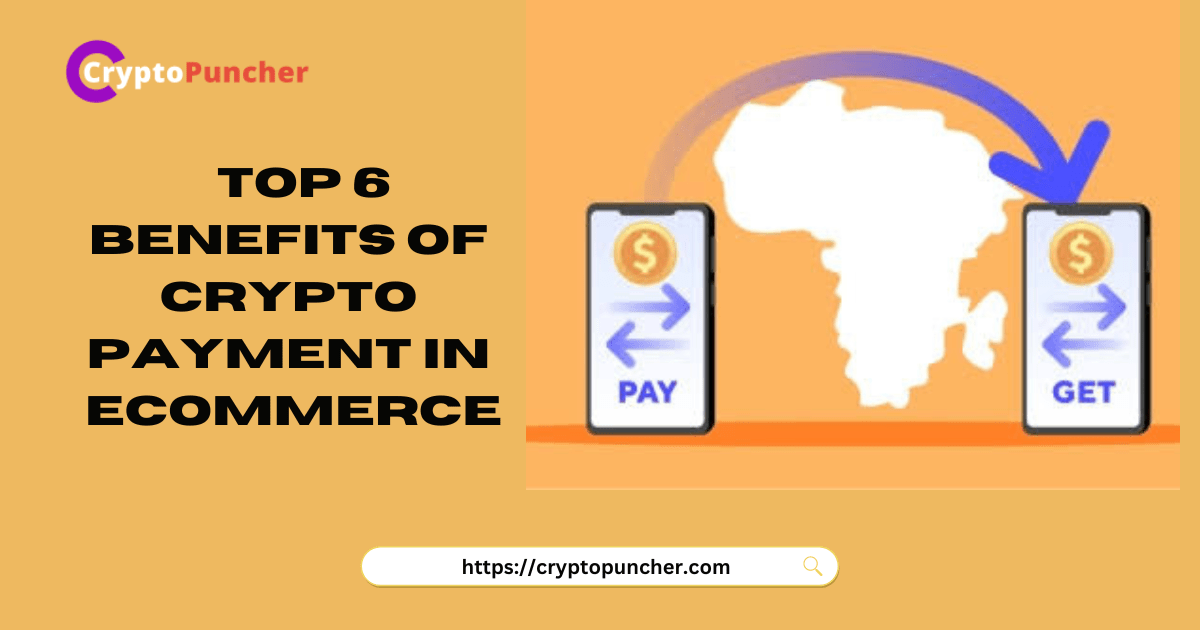Last updated on January 14th, 2025 at 05:33 pm
Did you just launch an online business, or you’ve got an existing store and you’re considering adding cryptocurrency payments?
The adoption of crypto payment into e-commerce has broadened security and cross-border payment. Because top companies such as Starbucks, Expedia, and Coca-Cola accept cryptocurrency for a seamless customer experience. In this article, we will explore the top 6 benefits of cryptocurrency payments in e-commerce, making it easy to understand.
Read this information to learn more about top companies accepting crypto payment
You can’t afford to be left behind on the opportunities cryptocurrency offers to e-commerce stores. To learn more, read through this article and gain firsthand knowledge on the top 6 benefits of cryptocurrency payments in e-commerce.
Challenges of E-commerce Payment
Most online stores struggle with payment methods in a fast-evolving digital space. This has been challenging for most businesses, even though they are familiar with this procedure. Consumers purchase products online with limited difficulties, and if there’s any challenge, it’ll be corrected immediately.
This can’t be said for vendors considering the security and transaction settlement challenges they encounter. Even in the emergence of a new school of thought, that online businesses need to adopt services that offer payment flexibility for credit and debit card customers through staggered payment of Buy now, pay later.
We’ll discuss the prevalent challenges encountered by online businesses. The right payment procedures can positively impact the overall performance of the business. Here we’ll be considering just a handful of challenges encountered by online businesses.
- Fraud has posed a lot of threat to online businesses considering global e-commerce is projected to reach $10 trillion in value by 2027, which is twice its previous growth. This has exposed online businesses to the tendency of fraudulent activities, and vendors need to be cautious knowing that fraudsters use different means either by friendly fraud, triangulation, or clean fraud.
This has posed a huge threat to the growth of e-commerce when buyers use their credit card for transactions. Sometimes customers may claim that they were not in receipt of the products or don’t remember paying for such products, and this can affect the reputation of the seller. Some vendors are involved in fraudulent activities by saving the personal information of their customers for self-use or selling it to third parties to make purchases without the consent of the cardholder.
- The e-commerce space struggles with integrated payment methods considering the recent growth. This has increased customer’s expectations for a satisfactory transaction and merchant experience. This has become a herculean task for online stores; it’s important to have proper payment integration to adapt to the processing platform. Considering different complexities across the globe, it’s important to have a variety of payment processes.
- Although customers can make payments from anywhere across the globe, the strength of non-native electronic payment can be challenging, either from mobile, credit card, or debit card. This requires that the payment method go through some legal compliance to incorporate solutions for its non-native payment customers.
- Most online businesses encounter processing fee challenges such as cost of business, taxes, etc. depending on various types and payment methods used by the companies. Although some of the fees are avoidable, others aren’t. Processing credit cards depends on the industry and transaction types for the processing fees.
- The customer needs robust support to rectify challenges encountered during processing fees that lead to abandoned purchases. Improvement in technology can enhance swift response for any complications encountered by customers during online payment. Users want a feel of instant response via their mobile devices, while customers with disabilities want access to support through convenient tools for a seamless experience.
History of Cryptocurrency
The desire for secure and encrypted digital assets leads scientists and cryptographers to create cryptocurrency. DigiCash was one of the first projects to emerge but had little success to its name; this set the precedence for emerging digital assets.
In 2008, a group of people by the name of Satoshi Nakamoto published a document itemizing the drive and vision behind Bitcoin. The subsequent year, its first coin was mined to offer trading solutions without third parties through blockchain technology. After Bitcoin, top digital assets by the name of Litecoin came into the scene in 2011 and Ripple in 2012 to complement the speed and efficiency of Bitcoin.
Bitcoin experienced a spontaneous growth to $1000 in price in 2013, and it was a significant period for the growth of the crypto space. ICO influences the crypto market by raising capital through the issuance of tokens but faces some difficulties with fraudulent activities. Despite all these setbacks, the crypto market has risen to over $2.65 trillion in market cap. The adoption of applications across various human endeavors, such as logistics and voting, has opened new opportunities.
What is cryptocurrency?
Cryptocurrency is a digital asset for secure and seamless transactions through blockchain technology. Cryptocurrency is a decentralized asset that secures personal information through a distributed ledger. The increase in fraud has led financial regulators to pay more attention to the crypto space to mitigate the loss of assets.
Benefits of Cryptocurrency Payment in E-commerce
1. Lower Fees
Cryptocurrency payment opens the opportunity for lower transaction fees compared with traditional financial services. Most crypto payment gateways charge 1% fees on all transactions compared to 2%-3% charges by credit card processors.
2. Wider Reach
Cryptocurrency has gained wider adoption in recent times. According to Triple-A, over 560 million people across the globe owned crypto assets, which account for 6.8% of the world population. This has given room to reach new customers who prefer a fast and secure payment system.
3. Fast Transaction
Crypto payment offers users fast transactions, unlike traditional financial services that take days or weeks for the arrival of funds. This means users get paid quickly to save time.
4. Reduction of Fraud
Crypto payments are secured through blockchain technology to reduce fraud or theft. Crypto payments protect user’s personal information through encryption on the blockchain and can be inaccessible to hackers.
5. Build Trust and Loyalty
The impact of crypto payment has built deep trust and loyalty across customers through innovative consumer experiences. Having instant access to buyer’s data has improved and personalized their approach to suit specific needs.
6. Access To Funds
Cryptopayment systems provide a seamless and efficient way for merchants and customers to access funds instantly. By eliminating the delays associated with traditional banking systems, they enable real-time transactions across borders, reducing reliance on intermediaries and ensuring quicker access to liquidity.
However, skepticism exists due to lingering trust issues stemming from the traditional financial system’s shortcomings, such as delays, high fees, and lack of transparency.
CONCLUSION
Cryptocurrency payments are revolutionizing the e-commerce landscape by offering unmatched advantages to businesses and consumers alike. From enhanced security and lower transaction costs to faster global transactions, these payments streamline operations and improve customer satisfaction. Features like decentralization, transparency, and fraud prevention instill trust, while broader accessibility enables merchants to tap into a growing global customer base.
Adopting cryptocurrency payment systems is no longer just an option but a strategic move for e-commerce businesses aiming to stay competitive in a rapidly evolving digital economy. By integrating crypto, merchants can future-proof their operations, attract tech-savvy audiences, and position themselves as leaders in innovation.
FAQ
Who first started cryptocurrency?
Satoshi Nakamoto created the first and most popular cryptocurrency called Bitcoin. It was launched in January 2009 by a computer programmer – or group of programmers – using the pseudonym Satoshi Nakamoto.
What was the first price of Bitcoin?
Bitcoin was worthless until the first transaction carried out by Martti Mali, a Finnish computer student in 2009 that gave Bitcoin a monetary value of $0.0009 each.
What is the benefit of getting paid in crypto?
The value of cryptocurrencies is volatile and can be a potential advantage. Although the risks are real, accepting cryptocurrency payments gives you a chance to grow your wealth.




